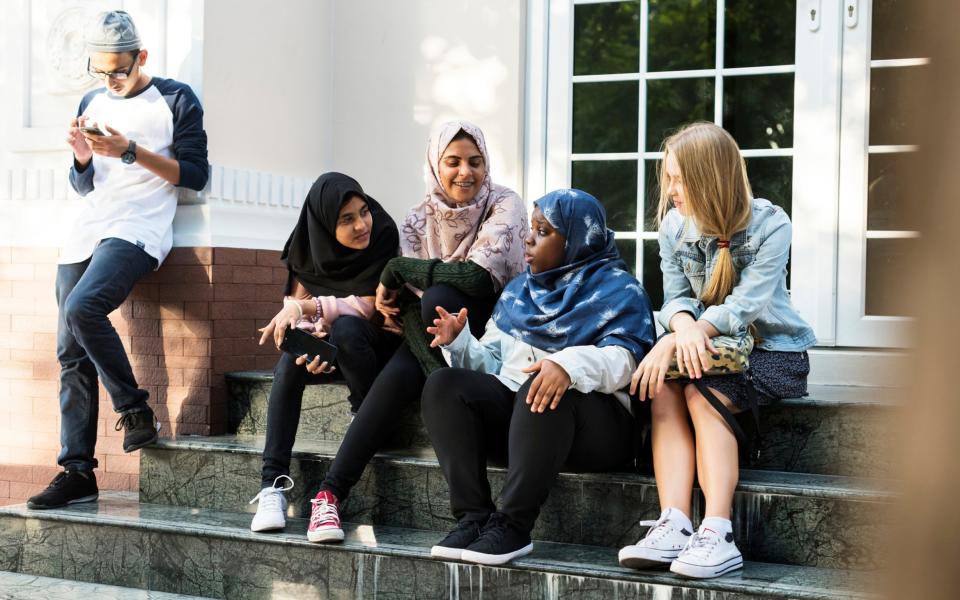Ban schools from using religion to select pupils, says UN

The United Nations has called for a ban on religion being used to select pupils in England, in what religious leaders and MPs have branded a “secular-inspired attack” on faith schools.
The UN Committee on the Rights of the Child published a report on child rights in the UK and concluded that “preventing the use of religion as a selection criterion for schools admissions in England” was a priority.
It also recommended repealing legal provisions for compulsory attendance in collective worship and called on the Government to establish statutory guidance to ensure that children have the right to withdraw from religious classes without parental consent.
However, the report has sparked a backlash from MPs, religious leaders and faith school providers who claim that it would be “illiberal” to deny religious families the basic right of a religious education and that it was inaccurate to claim that collective worship attendance is compulsory.
But Megan Manson, head of campaigns at the National Secular Society, welcomed the call for faith-based selection at schools to be abolished saying it was “disgraceful” that religious discrimination is permitted in “the schools we all pay for” and urged the Government to act on the report’s conclusions.
Most types of faith schools in England qualify for exemptions from the Equality Act 2010, which enable them to prioritise children from families who share their faith if they are oversubscribed.
This can include requirements for parents and children to regularly attend a local place of worship or provide evidence of baptism. As a result, some parents are unable to send their children to their local state school.
‘Attack on institutions of faith’
Responding to the UN report, Nick Fletcher, the Conservative MP for Don Valley and a member of the Education Select Committee, described it as an apparent “attack on people and institutions of faith”.
“It does not seem to come from a position of tolerance but rather one of intolerance,” he said. “I have confidence that here in the UK we will continue to respect Christianity and the other great faiths and to recognise the huge benefit they and the institutions they run bring to our society.”
Monsignor Michael Nazir-Ali, former Bishop of Rochester, added: “This sounds like a secular-inspired attack against faith and its influence in society. Parents are the primary persons responsible for their children’s upbringing – the state has only a supporting role.
“By the way, would this committee not be spending its time more fruitfully working out how Afghan girls can go back to schools, what to do about children being brainwashed in extremist madrassas and the many children in our world who still have no access to education, instead of targeting the UK where there is universal access to a reasonable quality of education?”
‘Their own religious framework’
Paul Barber, Director of the Catholic Education Service, added: “Parents have the right to raise and educate their children within their own religious framework and it would be illiberal to remove this basic right from them.
“Catholic schools are more ethnically diverse and serve more of the pupils from the most deprived backgrounds than the state sector.”
Nigel Genders, chief education officer at the Church of England, said that all of its schools “are there to serve the whole community – including families of all faiths and none”.
They added that when its schools are oversubscribed it provides places to those who regularly attend worship “and there is an argument that this can offer an alternative to a simple postcode lottery”.
A Church of England source also added that the institution was perplexed by the collective worship recommendation, saying that parents have been able to withdraw their children from collective worship since the 1944 Education Act and no recent legislation has affected this right.
A Department for Education spokesperson said: “Like all other mainstream state funded schools, faith schools must admit all children who apply, without reference to faith, where there are places available.
“Where they are oversubscribed, they may give priority for places within their oversubscription criteria to applicants on the basis of faith.
“The most recent Chief Adjudicator’s report on School Admissions shows that the admissions system is working well, with 92.2% of families offered their first-choice primary school and 83.3% were offered their first-choice secondary school in 2022”.

 Yahoo News
Yahoo News 